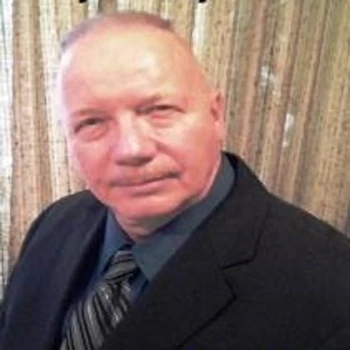
While investigation continues, it is now confirmed after weeks of speculation that Boundary County Sheriff candidate Dave Schuman is under investigation by the Idaho Peace Officer Standards and Training Academy over allegations that he falsified training certifications and over concerns regarding information he made public while still employed as a corporal with the office he is in the running to lead, a three way race likely to be decided next Tuesday.
The information was made public today in response to a May 3 Freedom of Information Act request for “all correspondence having occurred between any agent of the Boundary County Prosecutor’s Office and any agent of the Idaho Peace Officer Standards and Training in regard to (former) Deputy Dave Schuman; including but not limited to correspondence which was written by or on the behalf of the Bonners Ferry City Attorney and/or the Boundary County Prosecuting Attorney.”
In light of other requests for information on the case being rejected on the grounds that it was both a personnel matter and still under investigation, the individual who made this public information request specifically asked Boundary County Prosecutor Andrakay Pluid for assurance that the 48-page plus tranche of documents released were public record. That assurance was given before the documents were availed to 9B.News.
While there hasn’t been time for an in-depth, thorough reading of the documents and no official investigative findings have been made public, even a quick scan of the documents released prove concerning, an assessment bolstered by the decisions and actions of the prosecutor, whose loss of trust in Schuman as a peace officer is obvious and sufficient to derail Schuman’s career.
“Mr. Smith,” she writes POST office of Professional Responsibility Manager R. Daniel Smith February 12, “I am attaching a letter regarding my concerns regarding Deputy Schuman’s veracity pursuant to Giglio. Feel free to call with questions.”
Attached was a pages-long memorandum of record reference Ben Apo as regards allegations of conflict and financial discrepancies in reference to American Legion Post 55 and and Seniors Center that were never turned in for prosecution though there were concerns of potential crimes committed.
Allegations of falsified canine training records and of falsified personal training records; of false statements released to the public to bolster his campaign for sheriff.
For many professions, embellishment is expected and accepted, but law enforcement is not such a profession. While none of the allegations being investigated against Schuman might not rise to the level of a crime in the “real” world, these allegations, if proven, rise to have far greater significance to a law enforcement officer than even a crime might.
That’s because a law enforcement officer is held to a far higher standard than most others, the standard of public trust. And violations of that trust are serious.
“I am attaching a letter regarding my concerns regarding Deputy Schuman’s veracity pursuant to Giglio,” prosecuting attorney Andrakay Pluid wrote. By calling the question, she is telling the court she cannot trust this officer to testify in a court of law sufficient to maintain the integrity implicit in the pursuit of justice.
“Giglio” refers the 1972 Supreme Court Case 405 U.S. 150, and it bolstered the court’s 1963 findings in 373 U.S. 83, Brady vs. Maryland,
“The Brady and Giglio precedents require police officers to be especially careful to avoid any actions or statements that could compromise their credibility,” the Nevada law firm GGRQM explains on their website. “The prosecution is legally required to disclose any misconduct or compromising information regarding the witness to the defense attorney, who will then use it to impeach the law enforcement witness on the stand. The end result can be the loss of what would have been a strong case.”
While murky to the layman, the principles in Giglio and Brady go to the heart of jurisprudence and the fundamentals of due process. An officer “Giglioed” or Brady listed won’t go to jail, but won’t be trusted to testify in a court of law. Worse yet, any testimony given in their career becomes suspect and open to challenge. For all practical purposes, their effectiveness as a peace officer ends.
On April 1, Schuman released the statement, “I am officially retired from the Boundary County Sheriff’s Office. My days are filled with campaigning to be the next Sheriff and loving life. Vote 21 May 2024.”
On April 9 he confirmed that he remained a candidate.
“I’m a candidate for the elected office of Sheriff in Boundary County, Idaho,” he wrote. “After I declared my candidacy, and after a law enforcement career spanning decades with this Sheriff’s Office, I was suddenly subjected to a personnel action initiated, in the view of many, for purely political reasons, and designed to defeat my candidacy.”

Thank you, 9bNews, for following up with a Freedom of Information Act inquiry for clarity regarding Schuman. Sometimes the FOI Act permits the truth to come forward when candidates for office are not truthful to us voters.